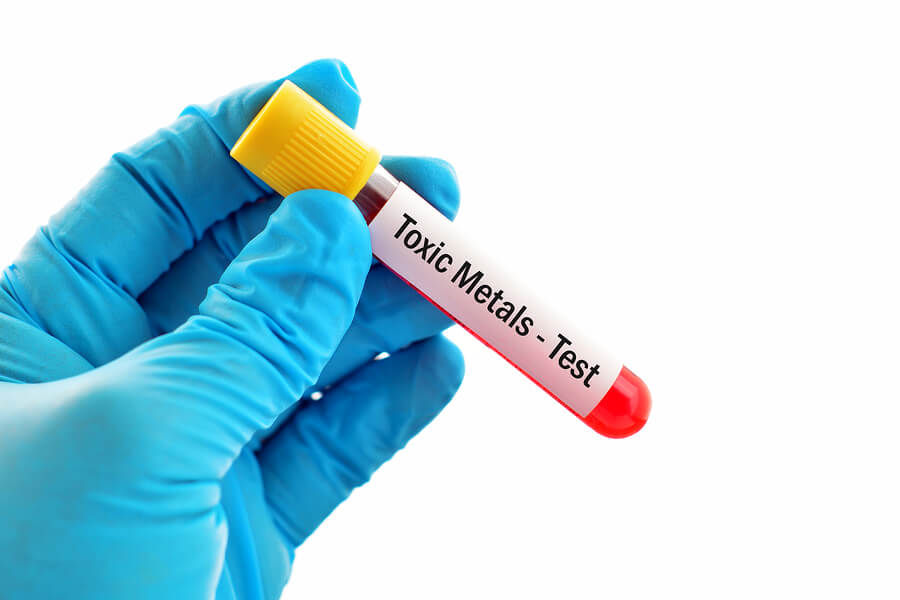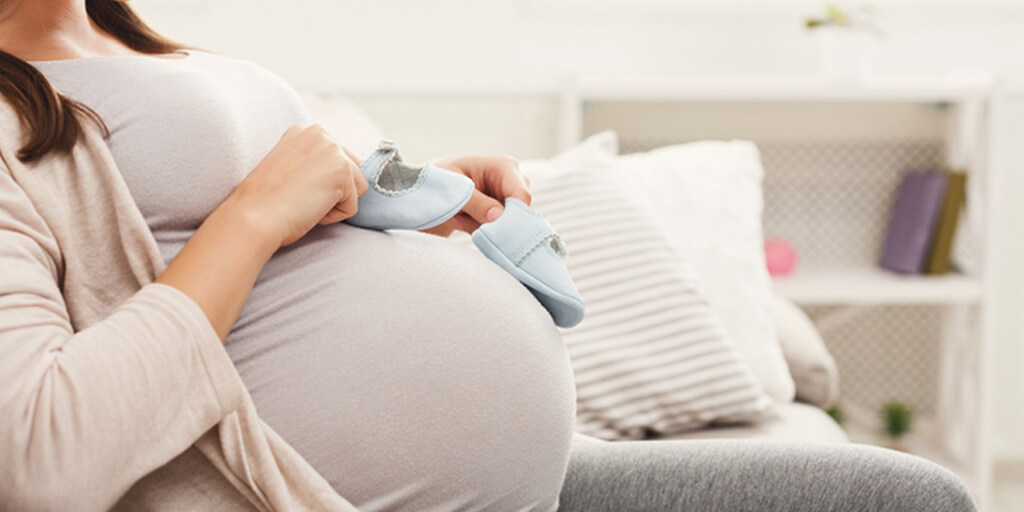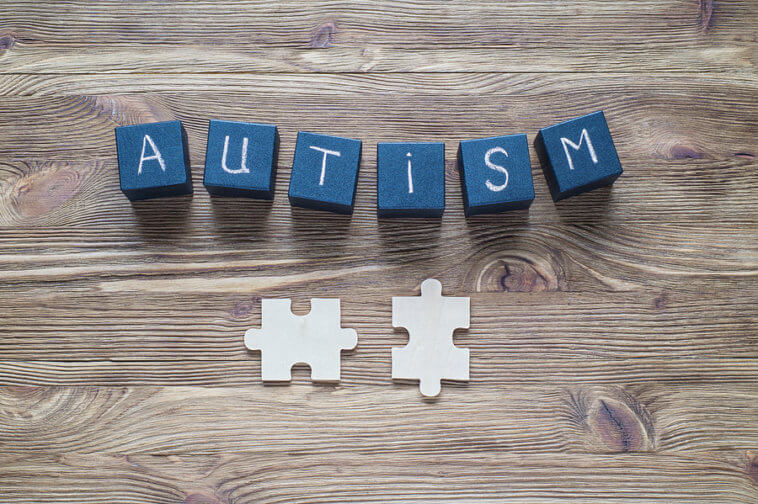Table of Contents
Autism is affecting more families now than ever – yet, the causes remain unknown. Experts have recently explored some options and say that they have pinpointed several factors that may contribute to the increase in autism spectrum disorder risk.
There is evidence which clearly shows that the time before, during and close to birth are a critical period in the development. Most scientists agree that both genetics and environmental factors can affect the risk.
Read on to find out more about autism, the environmental factors and what you can do to prevent it.

What are the 3 Main Symptoms of Autism?
The core symptoms of autism are social communication challenges and restricted, repetitive behavior. These symptoms first appear during early childhood but go unnoticed for some time.
While parents may feel that something is just a phase, these symptoms will persist and interfere with the daily life of the child in question.
Healthcare providers who specialize in this issue can diagnose autism through a checklist of criteria which goes through the categories above. They can also assess how severe the symptoms are and pinpoint how much support this person will need for daily function.
People with autism also have sensory issues. They are often very sensitive to sounds – or, on the other side of the spectrum, very insensitive – lights, touch, smell, taste, pain or any other sensory stimuli.
Children and adults with autism face a difficulty in verbal and nonverbal communication. They may have experiences such as:
-
Not understand and use a spoken language
-
Little to no gestures when speaking
-
Avoid making eye contact & common facial expressions
-
Have a monotonous tone
-
Unable to understand subtleties in communication such as irony, sarcasm, non-literal expressions.

They will also face issues in recognizing emotions in other people and their own emotions as well. Some often have trouble expressing their own emotions, seeking comfort and so on. They might feel overwhelmed when placed in a social situation and will not understand taking turns in conversation. Some people with autism might also have trouble assessing appropriate distance between people.
As mentioned, people with autism will often have restricted or repetitive behaviors. Repetitive behaviors may include rocking, spinning, running in circles, flapping hands and so on. They might also include objects – spinning wheels, sticks or flipping levers.
They will often stare at their object of interest for a long time – for instance, lights or something spinning. People with autism might also be involved in some ritualistic behavior like lining up objects a certain way before they can perform a simple task. Their interests are commonly narrow and focused on a specific thing as well.
People with autism need routine and don't adjust well to change – they will resist any changes in, for instance, route to school, meals, clothes, schedule and so on.
In essence, the three most noticeable symptoms of autism are:
- Social interaction and communication issues
- Possible sensory issues
- Repetitive and restricted behaviors

What Can Cause Autism During Pregnancy?
Experts, while still unsure what it is precisely that causes autism, have recently found that there are factors that happen during conception, pregnancy, delivery and early childhood which affect the amount of risk. Especially so in children who already have some level of risk due to genetics.
There are differences in the brains of children with autism and children who are not on the spectrum which are noticeable even in the second trimester of the pregnancy. So, ASD very likely happens as a combination of factors.
In some cases it’s primarily genetic while in some cases it’s primarily environmental. However, most cases show that the combination of both caused ASD.
Parents can’t do much about genetics – however, they can alter their exposure to various environmental factors that are linked to ASD. They should be prepared, however, that none of these factors are going to absolutely turn the situation around.
Evidence about environmental risks have been found only recently, so the scientific community hasn’t been able to say for certain what might change things. The key to reducing the risk – as much as it is possible right now – is to take some steps that can potentially help your baby.
A study has shown that children who were born to mothers with low iron levels have five times more risk to develop autism.
If the mother is over 35, has obesity problems, high blood pressure or diabetes, the risk increases.
However, since iron is crucial for the development of the brain, it is crucial that every pregnant women gets enough iron – either from supplements or from food.
Scientists looked at crucial moments like three months before the pregnancy and during breastfeeding – results show that mothers who were less likely to take iron supplements were the mothers of children with autism. However, this needs to be replicated to be confirmed.
But, if you are looking to decrease your risks, taking iron supplements is a good decision. It will also make you and your baby much healthier.
Exposure to air pollution may also be a factor. Women exposed to high levels of pollution, especially in their third trimester, showed more risk for having children with autism.
The challenge the scientists faced is understanding which component of the air pollution is relevant. So, the doctors came up with several ways to protect yourself from the air pollution:
- Do not exercise in areas where there is a lot of traffic
- When the pollution is high, you should exercise indoors.
Another question that many women are asking is whether an epidural can cause autism or increase autism risk. A French study found that use of spinal anesthesia during birth of mice resulted in high amounts of chloride and salt in the brains of baby mice. The scientists have concluded that the same may be one of the factors that increase the risk of autism.
These high chloride levels are normal and essential in utero but the oxytocin lowers them during labor. However, an epidural might interfere with oxytocin and thus, the levels of chloride or salt remain high in baby’s brain.
However, this was just one animal study and there needs to be more research done before it can be confirmed.
Another important factor scientists looked at is the mother's weight. They have found that there is a potential link between gaining an excess amount of pounds during pregnancy and autism. Anything more than 35 pounds or 25 if you are already overweight presents a higher risk for autism.
More studies confirmed, saying that there is a link between mother's pre-pregnancy BMI, weight gain in pregnancy and the level of risk for autism. One theory states that body fat might change hormones or cause inflammation which is bad for fetal brain development.
Even without these findings, women should watch their weight gain to reduce the risk of high blood pressure and diabetes.
Certain studies suggest that the increase in ASD risk could be connected to some pollution issues as well. Traffic pollution, some metals and pesticides could increase this risk.
It's hard to discern exactly which chemicals are harmful and which are not because there are so many in our environment – both coming from things we know are dangerous (like traffic) or something we are not assume is dangerous like cosmetics. Try your best to avoid canned food, water bottles, and cosmetics that have fragrance on the list of ingredients.
Mothers who have been diagnosed with gestational diabetes have a 63% higher risk of having a child with autism.
Exposure to sugar in utero may be the cause. However, it all comes down to the levels of blood sugar the mother has. For example, in mothers who have had diabetes before pregnancy there has been no higher risk of autism – this is probably due to blood sugar levels being in control.

You should talk to your doctor and do what you can to prevent pregnancy diabetes for a number of other conditions as well.
It raises your risk of preeclampsia, preterm labor and more.
There have also been certain links between medications a mother takes while pregnant that can affect the autism risk. Antidepressants have shown association with autism in several studies. Valproate, used for epilepsy or other neurological disorders can also increase the autism risk.
Pregnancies which have been spaced out between 2 and 5 years present the lowest risk for a child to develop autism. Children conceived in less than 12 months after the birth of the previous child are more likely (by 50%) to develop autism.
However, it’s still unclear why.
Children who are much younger than their older siblings – over 60 months – were also 30% more likely to develop autism. But this can be due to the increase in age of parents and that’s a known risk.
Prenatal vitamins like folic acid and various mixes of vitamins decrease the chance for a child to develop autism by half. High levels of folic acid are important for the child’s brain development and a mother should take them before and during pregnancy.
To lower autism risks, take folic acid regularly, whether you are trying to conceive or not since that can lower the risk for your future child to develop autism.
Maternal health during pregnancy is also very important. Mothers who have been seriously ill and hospitalized during pregnancy may be more likely to have children with autism. The same is also true for mothers with infections.
The best things an expectant mother can do is:
- Optimize their nutrition
- Take vitamins and prenatals
- Avoid unnecessary medications
- Avoid pollution as much as possible

Avoiding Toxic Exposures During Pregnancy
More and more environmental risks are being discovered every day. Scientists thus wonder if any of them are preventable.
When discussing environmental factors, we are talking about anything that’s not genetic. Even preterm labor can be an example of an environmental factor.
There is a reason to be concerned with toxic chemicals and heavy metals in the air, pesticides and so on. While you can’t avoid all of them, less exposure to these will reduce your risks. This also poses a threat to future general health.
High lead levels are known to decrease IQ scores. Endocrine disrupting chemicals lead to birth defects. But, parents can take steps to prevent this during pregnancy and breastfeeding in order to reduce autism risks. While nothing is for certain, reducing these chemicals in your daily life will improve the life of your child in general.
Mercury
This exposure can come from eating certain fish, use of skin-lightening creams and contact with quicksilver. It can cause lower IQ, result in poor language and worsen motor development. Avoid exposure by following specific fish eating guidelines and avoiding other mentioned contact with mercury.
Lead
Risk factors include occupational contact, imported cosmetics and renovating your home during pregnancy if that home was built before 1978. Avoid eating non-food items, getting involved in activities that may expose you to lead as well as cosmetics and food that have lead in them.
Pesticides
Exposure to pesticides can increase your risk for low prenatal growth, birth defects, leukemia and autism as well. Avoid chemicals for ticks and fleas which is used on your pets, pesticides for the garden and so on. Wash fruit and vegetables thoroughly before eating them.
Endocrine-disrupting chemicals
These include bisphenol A and phthalates which are usually found in household objects. These chemicals can mimic or block hormones in the body and these effects can be passed on to your children. This is associated with obesity, reproductive abnormalities and many other things. Avoid it by decreasing the consumption of canned food, processed food and plastics. Avoid exposure to dust as well.

What are Potential Risk Factors to Avoid?
While everyone is aware of the increase in the number of autism cases in the past decade, everyone is still fairly confused as to what causes it.
Here are some risk factors:
Consuming mycotoxins – These are molds found in grains, coffee, pork and wine.
C-sections (unless absolutely medically necessary) – Consider other birthing options before opting for C-section since there is evidence of this being a serious risk factor.
Placenta abnormalities – Abnormal placenta structures can't be avoided but an early intervention may be a good way to prevent autism. Keep regular doctor visits during pregnancy.
Smoking – Avoid smoking or being around second-hand smoke since components of cigarettes can affect your baby.
Air pollution – Avoid going out when the pollution is high and spend plenty of time in nature and fresh air.
Autism is a serious issue and more and more children develop it. However, there are some things that you can do to reduce the risks of your child getting autism. Follow these guidelines and talk with your doctor to ensure the healthiest care for you and your new child.
Sources
https://www.healthline.com/health/autism-risk-factors
https://www.globalhealingcenter.com/natural-health/8-risk-factors-for-autism/
https://www.autismspeaks.org/expert-opinion/avoiding-environmental-hazards-during-pregnancy
https://www.autismspeaks.org/what-are-symptoms-autism




Comments
Loading…